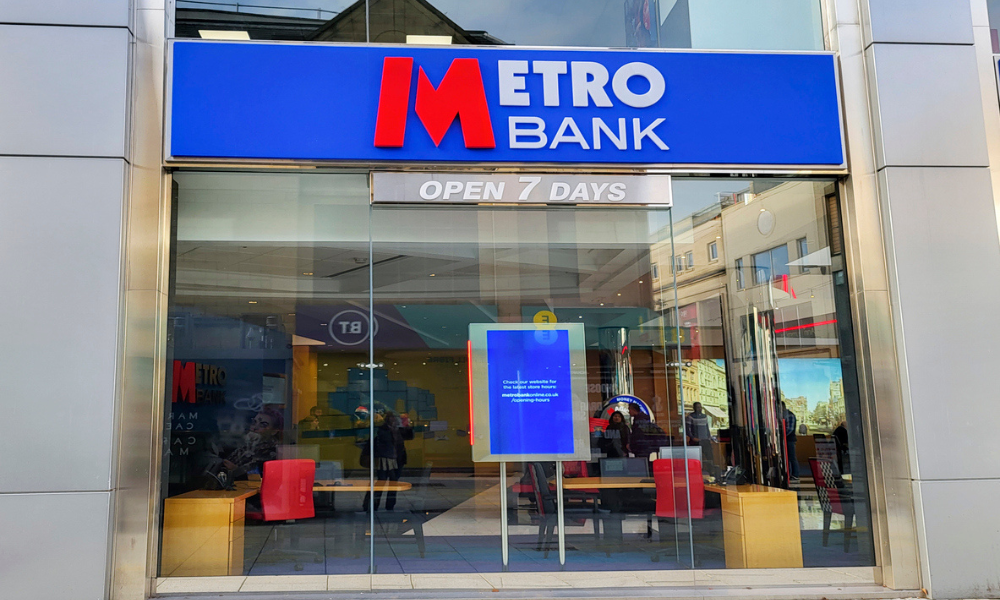After major cost saving exercise, bank looks for capital

When Metro bank was founded by Anthony Thomson and Vernon Hill in 2010, it was the first new high street bank to launch in the United Kingdom in over 150 years.
It launched with much fanfare, costumed entertainers were on hand and bright splashes of red white and blue – perhaps fitting for the American billionaire behind it, adorned every surface of the Holborn branch. Now, as part of its attempts to recover, it is once again exploring plans to sell off a multibillion-pound mortgage portfolio, only months after an investor rescue saved it from near collapse.
The London-based high street bank is reportedly collaborating with Morgan Stanley to generate capital through the sale of these mortgages.
According to City sources, the exact size of the mortgage portfolio is still being determined, with one advisor suggesting it could be closer to £4 billion rather than £3 billion. Offers for the portfolio were reportedly due several days ago.
This renewed effort comes four months after Metro Bank announced it would cut 1,000 jobs and cease its seven-day branch opening model to tighten cost controls.
In October, the bank secured a £925 million lifeline, raising approximately £150 million in new equity, £175 million in new debt, and refinancing £600 million of existing debt.
The rescue deal made Colombian billionaire Jaime Gilinski Bacal the majority shareholder. Previously, Metro Bank was in exclusive talks to sell a £3 billion mortgage book to Barclays, but negotiations fell through in December over pricing disagreements.
Banking analysts predict that Metro Bank will likely need additional capital in the coming months as its financial pressures continue.
Established in 2010, Metro Bank was the first new high street lender to open in Britain in over a
century. It serves around 2.7 million customers, providing current accounts, business accounts, personal loans, and insurance products from over 70 branches nationwide.
Last autumn’s crisis led to fears of a run on deposits, but the situation stabilized quickly following the recapitalization agreement.
Potential buyers for the mortgage portfolio were unclear as of Monday, but are expected to include major British retail banks.
In recent months, there has been a surge of consolidation among smaller banks. Recently, NatWest Group acquired Sainsbury’s Bank’s retail banking assets in a deal valued at approximately £2.5 billion. This acquisition includes £1.4 billion in unsecured personal loans, £1.1 billion in credit card balances, and around £2.6 billion in customer deposits. The deal is expected to finalise in the first half of 2025 and aims to expand NatWest’s reach and capabilities in retail banking.
Earlier this year, Barclays acquired Tesco Bank’s banking operations for about £600 million. This transaction is part of Barclays’ strategy to enhance its market position and consolidate its presence in the retail banking sector.
On Monday morning, Metro Bank’s shares were trading at around 36.1p, resulting in a market capitalization of £243 million, more than 70% lower than the same period in 2023.



